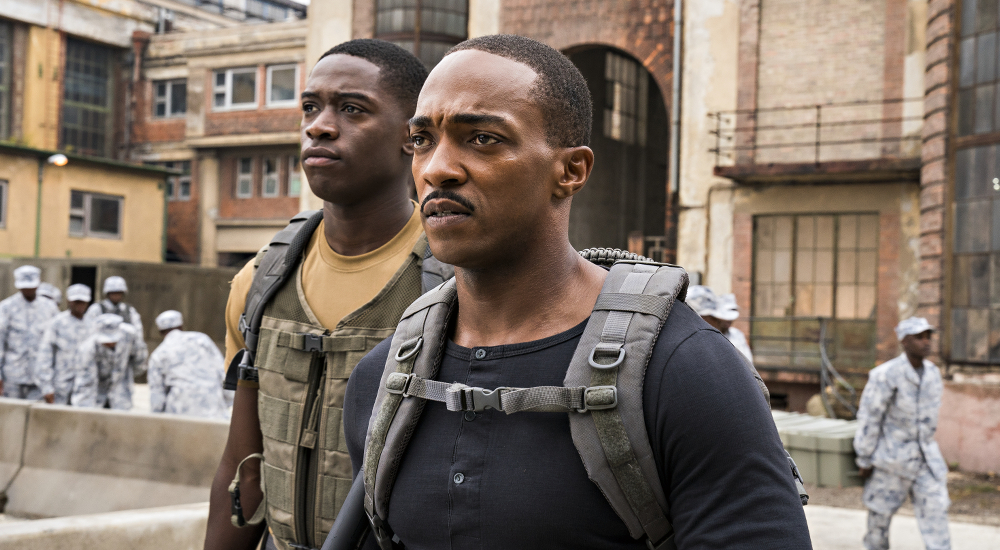"Welcome to the war, kid."
It has been almost four decades since James Cameron's Terminator hit the big screen. Since then, filmmakers have constantly toyed with machines becoming involved in warfare, often overtaking the humans that created them. It's become an age-old story, recycled countless times as studios attempt to paint the conflict in a new light. Mikael Håfström's Outside the Wire is no different.
The year is 2036. A civil war has broken out in Ukraine over Russia's attempt to expand their territory. The US serves as peacekeepers in the region, working to keep order during a time of chaos. But Victor Koval is seeking a set of codes to launch a nuclear attack to end the world as we know it.
Sound familiar? It should.
Lieutenant Thomas Harp (Damson Idris), a drone pilot, oversees a mission in Eastern Europe. When the squad on the ground comes under fire, he must decide whether to stage a rescue or disobey orders and fire at an armed truck full of robotic soldiers.
At that moment, Outside the Wire establishes its primary concept regarding technology and its innate ability to remove the uncertainty of human emotion. Harp's decision, though likely right, isn't the popular one. His punishment sends him to Ukraine, where he reports to Captain Leo (Anthony Mackie). There he will gain ground experience and see the effects of his actions up close and personal.
To this point, the plot works. Capturing the raw emotion of a military member, always sitting safely behind a computer screen, thousands of miles away from conflict, and placing them in the line of fire is, at the very least, interesting. Add that Mackie's cold but charismatic Leo isn't the brutal commander we had assumed, but rather an advanced android, capable of looking, acting, thinking, and feeling like most humans, and the premise deepens with complexity.
But, for all the questions that stem from their pairing, Håfström opts not to pry.
The decision is frustrating, especially given the potential that exists within the film's rough foundation. But, like many action films before it, Outside the Wire is focused on broad story points, explosive action sequences, and violence. Narrative details and character development are sacrificial elements. We tuned in for the high-stakes shootout and missile strike; everything else is mere fluff.
That said, I do applaud the film's effects and cinematography. Both are incredible. But the success there exemplifies the lackluster elements that plague the rest of the movie. Granted, Mackie and Idris are fine. Though neither has much to work with, their chemistry develops naturally. But there is just no getting past the fundamental restraints of the story.
As we enter the third act and the film's design comes into semi-clear focus, issues continue to disturb its progression. Painfully anti-climatic, the final conflict is handled with relative ease, the threat never, well, threatening. Screenwriters Rowan Athale and Rob Yescombe struggle to bring the story to a close, unable to generate much excitement or intrigue as the outcome has long been a foregone conclusion. But what should we expect? We've seen this film a dozen times already.
*This film is streaming globally on Netflix.

